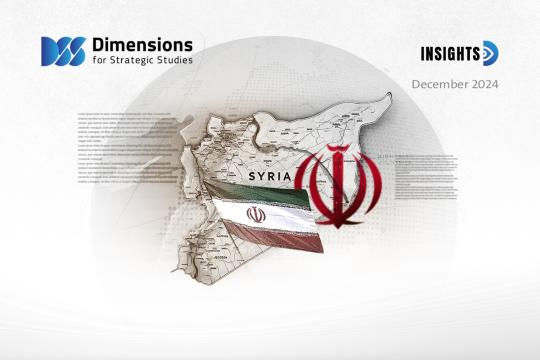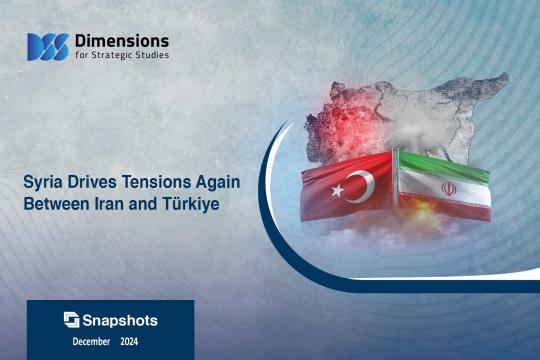
Granting confidence to the Al-Kadhimi government
2020-06-089170 view
Introduction
At dawn, Thursday, May 7,2020, the Iraqi parliament granted a vote of confidence to the government of former intelligence chief Mustafa Al-Kadhimi. That was five months after a government crisis that began with the resignation of Adel Abdul-Mahdi under pressure from the popular movement and undeclared pressure from the Shiite religious establishment, the Marjya. Since the latter's resignation, the Shiite blocs have organized several rounds of negotiations and traded many names; and Al- Kadhimi was present in most of them.
Muhammad Tawfiq Allawi, the former Minister of Communications, was the first choice of these blocs to form a government, but he failed to mobilize sufficient support from other parliamentary blocs. After his apology and the pressure of the constitutional deadline, the Shiite forces were unable to name their new candidate, so that the President of the Republic, Barham Salih, exercised his powers and named Adnan Al-Zurfi, the former governor of Najaf, as one of the names that the Shiite blocs were negotiating to choose. Like his predecessor, Al-Zurfi failed to garner sufficient support to pass his government, in conjunction with the strong opposition to his assignment by the Al-Fateh bloc led by Hadi Al-Amiri, the second largest parliamentary bloc.
With Al-Zurfi’s withdrawal from forming a government, the door was wide-open for Al-Kadhimi. He was assigned amid a kind of consensus among the political forces; however, the process of forming the government, selecting ministers, and the quotas that the parties insisted upon, were real obstacles in the way of Al-Zufri. He eventually managed to overcome most of these obstacles and neutralize some of them.
First: The Government Composition
The Parliament granted confidence to the Prime Minister plus 15 other ministers; but it denied confidence to five candidates. Al-Kadhimi did not originally nominate candidates for the oil and foreign ministries. Instead, he presented his cabinet without candidates for these two posts; because, his negotiations with the various parties, especially with the Kurds and Shiite blocs, reached a dead end; therefore he chose presenting an incomplete cabinet, until he gets confidence (which is obtainable if at least half of the members of the ministry pass through Parliament). Then; as he becomes the Prime Minister, he begins to exercise his duties and works on filling up the vacant positions. It is noted that the majority of the ministers who were included in the formation that Al-Kadheimi presented to Parliament are technocrats who came from academic, professional or bureaucratic backgrounds related to the competence of their ministries, according to their biographies published via local media outlets and included in the ministerial program.

Second; The confidence-granting session
a. Intricacies of the session
Parliament Speaker Muhammad al-Halbousi called on members to come to the parliament headquarters at nine p.m. to hold the session; but it was delayed for over 3 hours to have the quorum of the session, and also because of objections that emerged from some political forces in the last moments; as some political blocs would withdraw from the meeting hall, because of objections to their nominated ministers.
Despite that, Al-Kazemi and the opposition political blocs held negotiations until the last moments, with the aim of ensuring the government’s passage. And as a result of these negotiations, the candidates for the ministries of labor, agriculture and justice were changed.
For some time, the possibility of postponing the session to the next day loomed due to fear of not having a quorum, but Al-Kazemi was eventually able to settle things on his favour. 255 out of 329 MPs voted and granted confidence to 15 of the 20 minister candidates presented by Al-Kadhimi. It was also agreed to vote on the candidates for the ministries of foreign affairs and oil, and on alternative candidates for the ministries who did not obtain confidence.
b. The position of parliament members:
The government obtained Parliamentary approval by a show of hands in an open session. The government obtained confidence from the blocs: Sairoon (Muqtada Al-Sadr), Al-Nasr (Haider Al-Abadi), the Iraqi Forces Alliance (Al-Halbousi), the Kurdistan Democratic Party (Barzani), the Wisdom Movement (Al-Hakim), and the Kurdistan National Party (Talabani). Confidence was denied by: the National Coalition (Iyad Allawi), the Solution Party (Muhammad al-Karbouli), the Iraqi Decision (Osama al-Nujaifi), and the Turkmen Front. The State of Law bloc of (Nuri al-Maliki) boycotted the vote, and the Fatah bloc (Hadi al-Amiri) partially granted confidence to some ministers and denied it to others.

Third; winners and losers:
A- The Winners
1- Al-Kadhimi
The new prime minister, Mustafa Al-Kadhimi, is the most prominent winner, as he was able to pass his government after it won the vote of confidence from the Iraqi parliament, despite the vote of no confidence to 5 out of his 20 candidates. Al-Kadhimi, who was always seen as an acceptable person, was subject to losing this asset, had he failed to mobilise the support needed to pass his government. He efficiently and skilfully used all his capabilities to succeed in this task while maintaining the support of many parties with contradictory views, even at the external level.
From now on, Al-Kadhimi will be able to use this success at the level of his country's foreign relations and at the regional level, by trying to play an unconventional role in the Saudi-Iranian conflict.
Al-Kadhimi received a phone call from the Saudi Crown Prince shortly after obtaining the confidence; and he was invited by the Crown Prince to visit Saudi Arabia, in a sign that Saudi Arabia welcomed his election, and showed readiness to establish a positive relationship with him.
2- The Shiite blocs supporting Al-Kadhimi:
It is clear that the most prominent political blocs and forces that are categorized as winners by passing the Al-Kadhimi government are the Shiite forces that supported him in every step, starting from agreeing to nominate him, passing through his assignment and obtaining their ministerial shares, and ending with voting in the Parliament. These forces are, in fact, headed by "Sairoon", "The Movement of Wisdom" and "The Al-Nasr Alliance".
3- The Sunni Forces Alliance bloc in addition to the Shiite forces that profited from passing the Al-Kadhimi government, the majority of the Sunni forces, topped by the Iraqi Forces Alliance led by Parliament Speaker, Al-Halbousi, are the main beneficiaries from this achievement; firstly, because they obtained the share they demanded in the government; secondly, because Al-Kadhimi is the first Iraqi prime minister in the post-2003 era, who does not come from the Shiite religious parties that bear feelings of revenge in general against the Sunnis, as the public base of Saddam Hussein's regime. Furthermore, Al-Kadhimi is described as a secular Shiite. Such a person with these characteristics has always been a Sunni demand.
4- The Popular Movement:
Although the Popular Movement that began in early October 2019 may be seen as one of the losing parties in the entire process, by virtue of its neutralization from the decision-making process, and the course of the process as a whole; and because some of its spokesmen classified Al-Kadhimi's as the choice of the corrupt politicians, and therefore not the option they seek; the change that took place with Al-Kadhimi heading the government- as a secular person far from the Shiite religious parties dominated by Iran- opened the door wide to a new political era in Iraq.
One of the tasks before Al-Kazemi’s government is to organize early elections a year after its formation. If such elections are held on time, they will be an extra gain for the street, in addition to removing the Abadi government that had some elements under the Iranian hegemony.
B- The Losers
1- Pro-Iranian Factions:
Although the Al-Fateh Alliance parliamentary bloc, whose members mostly supported Al-Kadhimi’s government, is considered the political umbrella for the pro-Iranian factions and militias; the emergence of division within the bloc about granting confidence to the new prime minister- in addition to the position of the Hezbollah Brigades closest to Iran, that opposes and rejects Al-Kadhimi- lead to the belief that passing his government constituted a loss for these militias.
In their first public reaction to the passing of Al-Kadhimi's government, the Hezbollah Brigades renewed their rejection of Al-Kadhimi. This comes after these militias kept on issuing several statements and remarks since his name was circulated. They accused him of being involved in the assassination of Qassem Soleimani and the deputy commander of the Popular Mobilization Forces, Abu Mahdi Al-Muhandis.
2 - Maliki's State of Law Coalition:
Observers unanimously agree that al-Maliki, whose position is always linked to the position of the militias loyal to Iran, and who has very strong relations with Tehran, is the biggest loser in passing the Al-Kazemi government; not only because it is far from his original position and tendencies, but also because of his failure to impose candidates, including his brother-in-law Yasser Sakhel to assume the Ministry of the Interior. That led to the of his bloc’s decision to boycott the confidence vote.
3 - The Kurds:
Although Al-Kazemi granted the Kurds 3 ministerial posts in the government, as was the case in previous governments, the Kurdish blocs demanded 4, this time; and they also insisted on naming Fouad Hussein for the position of Minister of Finance, who was accused by Shiite blocs of corruption and favoritism to the Kurdistan region in his position. Al-Kazemi ended the argument by taking a decision to assign the finance portfolio to the Shiites, and to regive the foreign ministry portfolio to the Kurds, which was rejected by the Kurdish blocs until the last moments. They were threatening to withhold confidence from the entire government unless it included giving the finances to Fouad Hussein, their candidate. Al-Kazemi’s negotiations with them however apparently convinced them to accept the foreign ministry, and he would reconsider their candidate for this position at a later date.
4 - Iran
Despite the Iran and American shared approval and welcoming of Al-Kazemi’s government, it cannot be denied that Iran’s consent was reluctant, due to its awareness of the unavailability of a candidate to meet its terms. Al-Kazemi is not the best option for Iran, and he is completely far from the circle of influence and subordination to it in Iraq. He moreover has strong relations and contacts with Iran’s opponents and competitors such as the United States and Saudi Arabia, due to the nature of his previous work as head of intelligence.
Accordingly, Iran cannot be seen as one of the winners, based on its declared pro-Kazemi stance, but rather it is considered one of the losers for the aforementioned reasons, and the loss may be greater at the mid term level.





